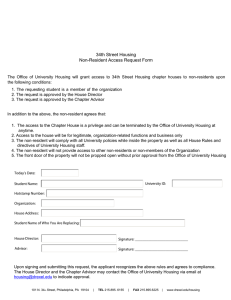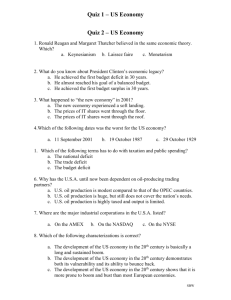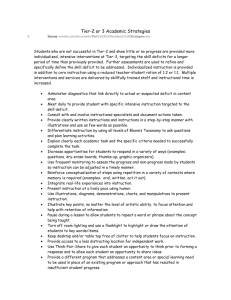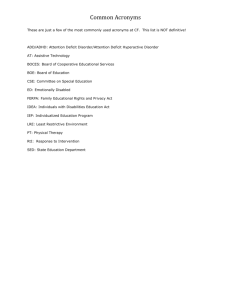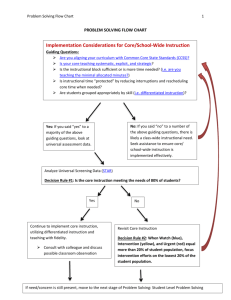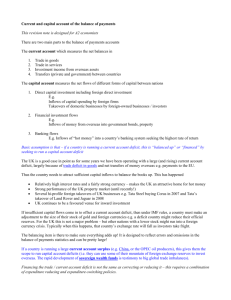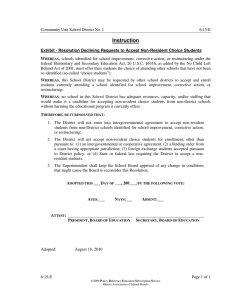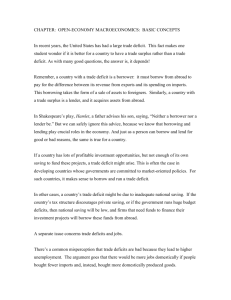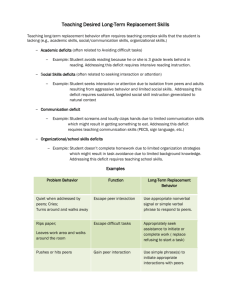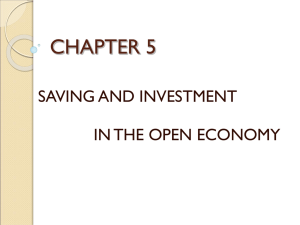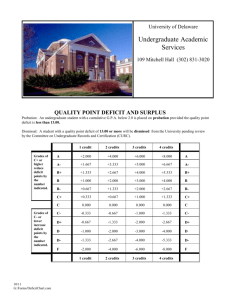Sample of a good skimmable memo
advertisement
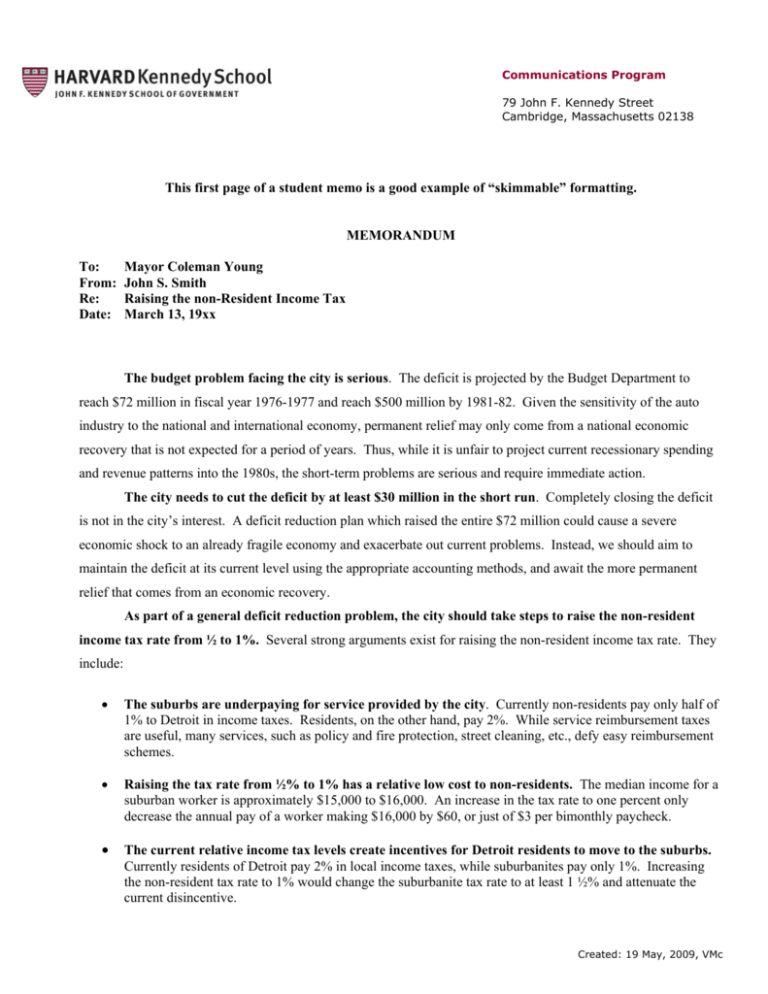
Communications Program 79 John F. Kennedy Street Cambridge, Massachusetts 02138 This first page of a student memo is a good example of “skimmable” formatting. MEMORANDUM To: From: Re: Date: Mayor Coleman Young John S. Smith Raising the non-Resident Income Tax March 13, 19xx The budget problem facing the city is serious. The deficit is projected by the Budget Department to reach $72 million in fiscal year 1976-1977 and reach $500 million by 1981-82. Given the sensitivity of the auto industry to the national and international economy, permanent relief may only come from a national economic recovery that is not expected for a period of years. Thus, while it is unfair to project current recessionary spending and revenue patterns into the 1980s, the short-term problems are serious and require immediate action. The city needs to cut the deficit by at least $30 million in the short run. Completely closing the deficit is not in the city’s interest. A deficit reduction plan which raised the entire $72 million could cause a severe economic shock to an already fragile economy and exacerbate out current problems. Instead, we should aim to maintain the deficit at its current level using the appropriate accounting methods, and await the more permanent relief that comes from an economic recovery. As part of a general deficit reduction problem, the city should take steps to raise the non-resident income tax rate from ½ to 1%. Several strong arguments exist for raising the non-resident income tax rate. They include: • The suburbs are underpaying for service provided by the city. Currently non-residents pay only half of 1% to Detroit in income taxes. Residents, on the other hand, pay 2%. While service reimbursement taxes are useful, many services, such as policy and fire protection, street cleaning, etc., defy easy reimbursement schemes. • Raising the tax rate from ½% to 1% has a relative low cost to non-residents. The median income for a suburban worker is approximately $15,000 to $16,000. An increase in the tax rate to one percent only decrease the annual pay of a worker making $16,000 by $60, or just of $3 per bimonthly paycheck. • The current relative income tax levels create incentives for Detroit residents to move to the suburbs. Currently residents of Detroit pay 2% in local income taxes, while suburbanites pay only 1%. Increasing the non-resident tax rate to 1% would change the suburbanite tax rate to at least 1 ½% and attenuate the current disincentive. Created: 19 May, 2009, VMc
